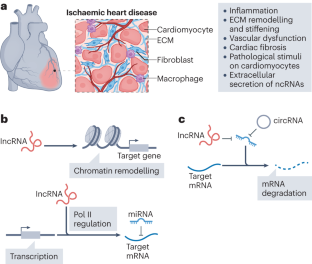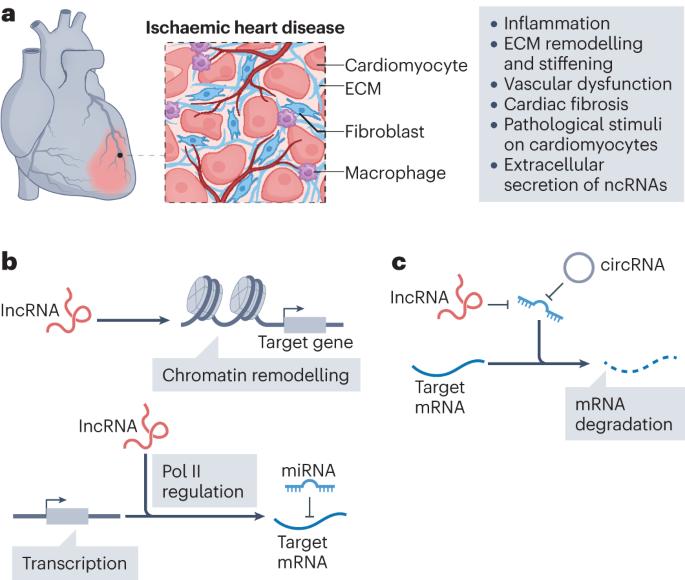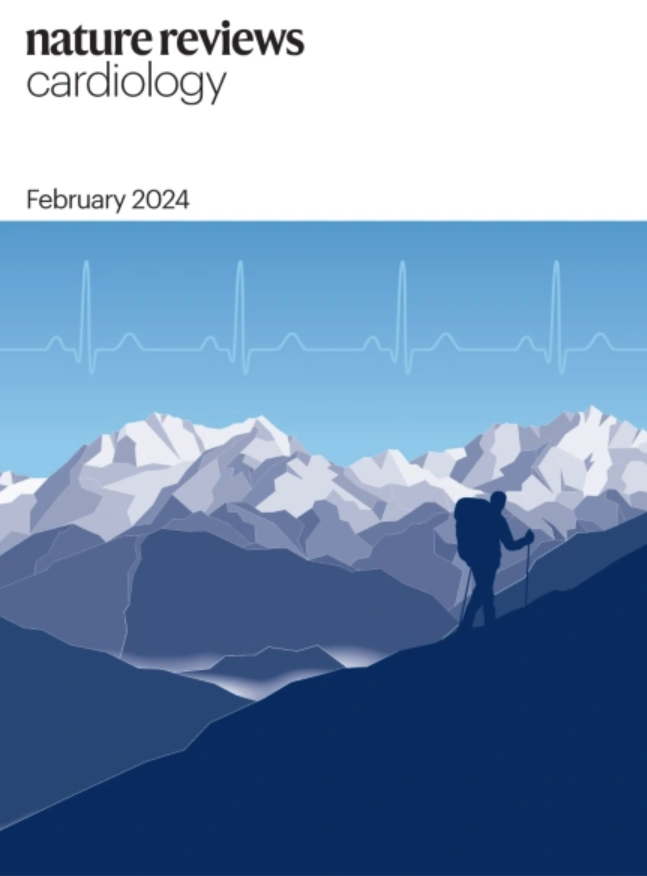Non-coding RNAs as therapeutic targets and biomarkers in ischaemic heart disease
IF 41.7
1区 医学
Q1 CARDIAC & CARDIOVASCULAR SYSTEMS
引用次数: 0
Abstract
The adult heart is a complex, multicellular organ that is subjected to a series of regulatory stimuli and circuits and has poor reparative potential. Despite progress in our understanding of disease mechanisms and in the quality of health care, ischaemic heart disease remains the leading cause of death globally, owing to adverse cardiac remodelling, leading to ischaemic cardiomyopathy and heart failure. Therapeutic targets are urgently required for the protection and repair of the ischaemic heart. Moreover, personalized clinical biomarkers are necessary for clinical diagnosis, medical management and to inform the individual response to treatment. Non-coding RNAs (ncRNAs) deeply influence cardiovascular functions and contribute to communication between cells in the cardiac microenvironment and between the heart and other organs. As such, ncRNAs are candidates for translation into clinical practice. However, ncRNA biology has not yet been completely deciphered, given that classes and modes of action have emerged only in the past 5 years. In this Review, we discuss the latest discoveries from basic research on ncRNAs and highlight both the clinical value and the challenges underscoring the translation of these molecules as biomarkers and therapeutic regulators of the processes contributing to the initiation, progression and potentially the prevention or resolution of ischaemic heart disease and heart failure. Non-coding RNAs are implicated in the pathophysiology of ischaemic heart disease and heart failure. In this Review, Caporali and colleagues examine the biology of these molecules and discuss the potential of non-coding RNAs for translation to the clinic as biomarkers and therapeutics in adverse cardiac remodelling leading to ischaemic heart failure.


作为缺血性心脏病治疗靶点和生物标志物的非编码 RNA。
成人心脏是一个复杂的多细胞器官,受到一系列调控刺激和回路的影响,修复能力差。尽管我们对疾病机理的认识和医疗保健质量都有了进步,但缺血性心脏病仍然是全球死亡的主要原因,其原因是心脏重塑不良,导致缺血性心肌病和心力衰竭。保护和修复缺血性心脏迫切需要治疗目标。此外,个性化临床生物标志物对于临床诊断、医疗管理和了解个人对治疗的反应也是必要的。非编码 RNA(ncRNA)深刻影响着心血管功能,有助于心脏微环境中细胞之间以及心脏与其他器官之间的交流。因此,ncRNA 是转化为临床实践的候选物质。然而,ncRNA 的生物学特性尚未被完全破解,因为其类别和作用模式只是在过去 5 年中才出现的。在这篇综述中,我们将讨论 ncRNA 基础研究的最新发现,并强调将这些分子转化为生物标记物和治疗调节剂的临床价值和挑战,这些过程可能会导致缺血性心脏病和心力衰竭的发生、发展以及预防或缓解。
本文章由计算机程序翻译,如有差异,请以英文原文为准。
求助全文
约1分钟内获得全文
求助全文
来源期刊

Nature Reviews Cardiology
医学-心血管系统
CiteScore
53.10
自引率
0.60%
发文量
143
审稿时长
6-12 weeks
期刊介绍:
Nature Reviews Cardiology aims to be the go-to source for reviews and commentaries in the scientific and clinical communities it serves. Focused on providing authoritative and accessible articles enriched with clear figures and tables, the journal strives to offer unparalleled service to authors, referees, and readers, maximizing the usefulness and impact of each publication. It covers a broad range of content types, including Research Highlights, Comments, News & Views, Reviews, Consensus Statements, and Perspectives, catering to practising cardiologists and cardiovascular research scientists. Authored by renowned clinicians, academics, and researchers, the content targets readers in the biological and medical sciences, ensuring accessibility across various disciplines. In-depth Reviews offer up-to-date information, while Consensus Statements provide evidence-based recommendations. Perspectives and News & Views present topical discussions and opinions, and the Research Highlights section filters primary research from cardiovascular and general medical journals. As part of the Nature Reviews portfolio, Nature Reviews Cardiology maintains high standards and a wide reach.
 求助内容:
求助内容: 应助结果提醒方式:
应助结果提醒方式:


